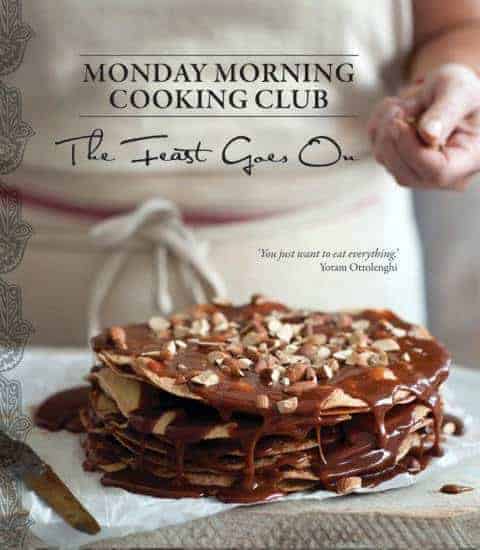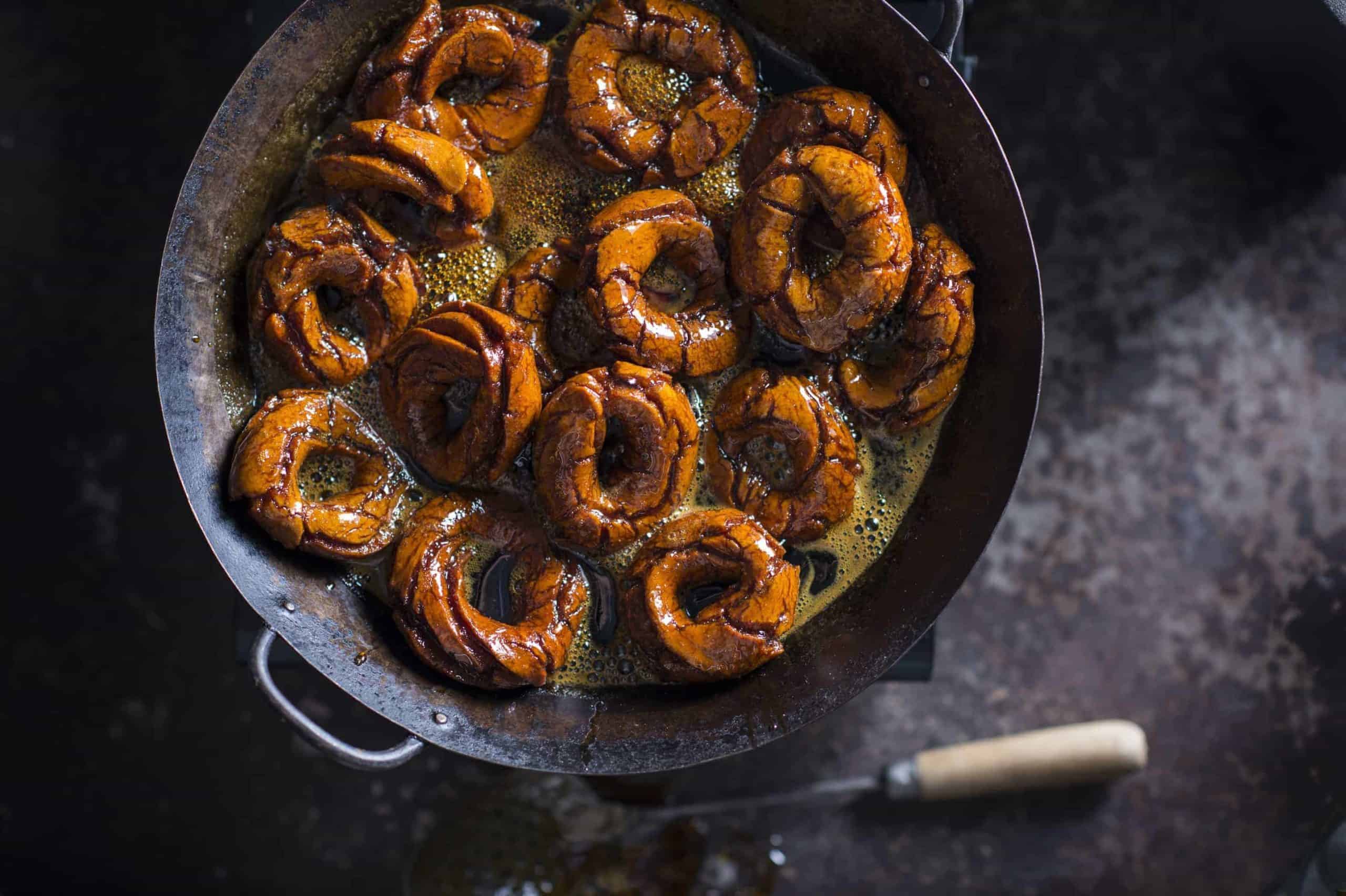Aunty Myrna’s Tzimmes

Soft, Sweet, Glazed Carrots for the Jewish New Year
Tzimmes is a traditional recipe for Jewish New Year – slow cooked, very sweet glazed carrots. The dish represents the wish for a sweet (honey) and prosperous (the carrot ‘coins’) new year. It is served as a side dish and sometimes is cooked with dumplings and prunes in it.
This is a beautiful and simple version!
My Aunty Myrna was the most wonderful cook, renowned for many delicious sweet and savoury dishes. One of her greatest joys was to cook for us, and ply us with copious amounts of her fabulous food. She passed away several years ago and I wish I had spent more time with her in the kitchen, learning her secrets.
This is one recipe that she shared with me, and would make for us each year on Rosh Hashanah. It has now become one of the Monday Morning Cooking Club favourites!

Aunty Myrna's Tzimmes
Ingredients
- 20 carrots peeled (about 3.2 Kg/7 lbs)
- 3/4 cup sugar (165 g/6 oz)
- 1 1/4 cups honey (540 g/20 oz)
- 3 lemons juiced
- 1/2 teaspoon ground cinnamon
- sea salt and freshly ground black pepper
- 100 grams butter or margarine (3 1/2 oz)
Instructions
- Slice the carrots into 5 mm (1/4 inch) slices. Soak in water for a few hours or overnight if possible.
- Drain the carrots, place in a large saucepan and barely cover with water. Bring to the boil, and cook for 5 minutes.
- Add the sugar, honey, lemon juice, cinnamon, large pinch of salt and pepper and the butter. Cook, uncovered, for at least 1 - 2 hours (medium heat) until the carrots are glazed and soft, and the water is almost all gone. Once cool, refrigerate overnight or until cold.
- When ready to serve, preheat the oven to 200°C (400F). Put the carrots in an ovenproof dish, cover with foil and bake for 1 hour. Remove the foil for the last 15 minutes so they become glazed and golden.
Check out our complete Rosh Hashanah Menu Guide .
And you can buy the book right here.







I love your recipes, but could I please complain about my pet peeve?
Could you please give your measurements in weight as well as cups? BTW, as an aside, I noticed that there is a choice between metric and US Imperial, but the cup measurements don’t change.
I know that (regardless of how inexpensive some scales are these days) some people refuse to get scales, but most of us that cook on a regular basis do have a pair. However, by all means do show cup measurements, but let the rest of us weigh things, please!
Why put sticky honey into a cup, when I could put it directly into the saucepan? (yes, I do know about the oiling trick, but why dirty extra dishes?)
That is one of the reasons i hate recipes that only come in cup measurements. US and Australian cups are NOT the same, so how does one know if the cup mentioned is metric or US Imperial?
https://www.traditionaloven.com/culinary-arts/volume/convert-cup-us-to-cup-au.html
OK, I know that in the case of Tzimmes, measurements don’t need to be that exact, but in some recipes it does matter.
BTW, 1 carrot per person? What size carrot? Wouldn’t it be simpler to give a weight measurement?
Hi Judy, thanks for your message, we couldn’t agree more! We have learnt a lot over the course of our three books and you will notice there is an improvement in measuring systems in each book. I have added weights above to this recipe to hopefully make it easier.
We always prefer to weigh ingredients – particularly when baking and you’ll see the recipes in our latest book ‘It’s Always About the Food’ have volume and weight measurement for all baking recipes, and where it is important in all others.
The difference between Imperial and Metric is really something we have thought about a lot during our recipe writing. Australian tablespoons are 20 ml, and USA use 15 ml. And many tablespoon measures sold in Australia are 15. But at the end of the day, we all decided that it is very rare that the 5 ml difference (or the 10 ml difference in an Imperial and Metric cup) makes a real difference.
We will continue to give weight measurements in all recipes but sometimes oldies (and goodies!), like this one, slip through the cracks.
Happy cooking,
Cheers,
Lisa